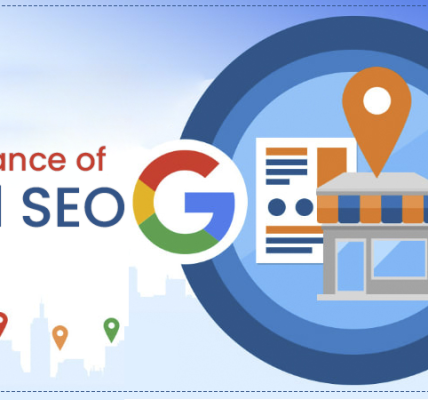It has been a conflict on the internet for a long time, “What does Google prefer: On-page SEO or off-page SEO?” Some say On-page SEO, and others say off-page SEO. But what’s the truth? Are you confused too? We have something for you!
How about knowing what role on-page or off-page SEO plays on search engines and for your website? Let’s discuss all of it in detail further in the blog i.e., about on-page SEO, off-page SEO and what comes first!
On-page SEO
On-page SEO consists of all the actions you take on the page for the growth of your website and ranking it higher on search engine result pages. It helps in improving your website’s visibility and attracting organic traffic.
When your website is optimized, it becomes easier for search engine bots to understand the content that you provide to your audience and analyze it. And when you prove to be a “full-of-information website”, your website’s rank is higher and search engines recommend it to more users searching for relevant information.
-
To optimize on-page, you take the following steps –
-
Keyword Optimization throughout the website to appear in relevant searches.
-
Posting High-Quality content to provide the audience with a lot of information and value, enhances user experience and you emerge as an industry expert.
-
Use keywords meta tags and descriptions to let search engines understand what the content/webpage/ website is about.
-
Linking internally to direct users from one content to another to provide them with detailed information and increase their stay time on your website.
With implementing all these steps, it’s important to be active on the website, engage regularly with your audience and update information and content on the website regularly. Don’t forget to run tests and checks on your website to see what’s working for you and where you need to improve.
Off-page SEO
Off-page SEO is about going off-site and engaging to grow your website’s reputation, authority and visibility. It’s more like engaging with other industry experts, reaching out to people and sharing about your website to let people know what it is and invite them to visit it.
-
When you optimize off-page, you build relations with other industry experts, creators, business owners and even your audience. You prove that you’re authoritative and trustworthy. Through off-page SEO, you increase your brand’s awareness and make a place in the hearts of people.
-
It also includes actions that make the audience remember you and help you rank your website indirectly. To implement off-page SEO, you –
-
Engage on social media with your audience and create awareness about your brand through images, videos, Q&A and direct conversation with your audience.
-
Post on other authoritative and trustable websites. When you post valuable content on other websites, you gain additional audience and visitors for your website. It includes gaining the trust of search engines too.
-
Reach out to gain backlinks. Backlinks are when other website owners put links on your website or your web pages because they think they’re informational and provide value. You can gain backlinks through guest posting, broken link building, influencer outreach and by creating appealing content as well.
-
Create a profile like Google My Business Profile, and perform local citations on different authoritative directories with correct and same information everywhere. This increases your authority and the genuineness of your website.
Additionally, you can reach out personally to your family, friends, and relatives to view your website and engage regularly. You can attend local events and advertise there. As we said in the beginning, the actions you take off-site, to improve one site’s performance are called off-page SEO.
What Comes First- On-page SEO Or Off-page SEO
It’s been a debate when it comes to off-page and on-page SEO. And just like one can assume, people get confused. But if we think and research practically, we’ll find that Google prefers both. Both hold an equally important place for ranking on search engines.
But, there’s one more thing we’re missing out on. Does any of them depend on the other? Well, yes! Off-page SEO. Let’s discuss how – Both, off-page and on-page SEO are important, but on-page is prioritized by Google. And eventually, off-page is a second priority. But, that doesn’t mean off-page isn’t important. We’re just talking about priority in terms of “what to focus on first.”
We saw that on-page consists of posting high-quality content, structure of the website and optimizing it for keywords and tags. Similarly, on-page SEO consists of creating backlinks, giving social signals and building an online reputation. But still, Google prioritizes on-page SEO, why?
-
Imagine building a reputation for a website that has nothing on it. Strange right? If you see, posting valuable and high-quality content is a part of on-page SEO. When you have content on your website, only then you can share it among others, invite others to link to your website or promote your blogs and other content.
-
Suppose, Google doesn’t know about your website, or what your website is about. So even if you gain backlinks or make the influencers share your website, will you rank? No. Meta tags, a part of on-page SEO, help the search engines understand what your website is about and rank it on SERPs. And after that, when you share your content more, it’s possible to consistently rank on SERPs.
Similarly, various factors and results of on-page SEO affect Off-page SEO. So, both on-page SEO and Off-page SEO are important. But, whenever you start your website, or if you’re already running a website, focus on on-page SEO first and then go for Off-page SEO. This way, you rank, gain traffic and gain visibility and authority as well.





